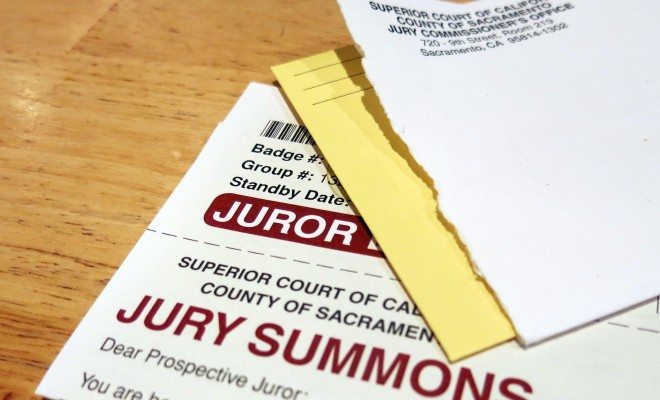 Image courtesy of [Robert Couse-Baker via Flickr]
Image courtesy of [Robert Couse-Baker via Flickr]
Law
Was There a Stealth Juror in the James Holmes Case?
James Holmes was sentenced to life in prison yesterday by Judge Carlos A Samour, without possibility of parole. He will be serving 12 consecutive life sentences, and an additional 3,318 years in prison. While that’s obviously an incredibly restrictive and grave sentence, many were surprised that the perpetrator of one of the bloodiest mass shootings in history didn’t receive the death penalty, and questioned the motives of the single juror who voted against it.
Aurora theater gunman sentenced to life without parole http://t.co/WVytelb7bz pic.twitter.com/Hlw4CPhCNp
— The Atlantic (@TheAtlantic) August 26, 2015
On July 20, 2012, Holmes opened fire in a theater in Aurora, Colorado, during a showing of the “The Dark Knight Rises.” He killed 12 people and injured 70 others before being detained. In court, his lawyers claimed that he wasn’t guilty by reason of insanity, but that defense was ultimately unsuccessful, given that he had clearly put thought into his assault beforehand. He had spent months accumulating weapons and body armor, and had purchased his ticket beforehand.
In Colorado, in order for a defendant to be sentenced to the death penalty, the jurors had to vote unanimously for the death penalty. In this case, there was one juror who would not vote for that sentence, ensuring that the death penalty could not be used. Instead, Holmes was sentenced to 12 consecutive life sentences by the jurors–as is custom in Colorado the judge formally sentenced him today and was bound by the jury’s decision.
The fact that it was just one person who stood between Holmes and the death penalty received mixed reactions. For Judge Samour, it was an act that represented compassion in the face of the horrible evil that Holmes committed. Judge Samour stated: ““At least one juror showed the defendant the mercy that he refused the victims that day when he went into that theater.”
However for others, the fact that Holmes didn’t receive the death penalty was deeply problematic. Robert Sullivan, grandfather to six-year-old Rebecca Moser-Sullivan who was killed, and father to Ashley Moser, who was paralyzed, explained his frustrations to CNN. The sticking point appeared to be the one juror who voted against the death penalty; Sullivan called him a “stealth juror.” In order to be on a jury trying a death penalty case, you have to be willing to vote for the death penalty. A stealth juror is someone who is secretly anti-death penalty, but is still able to convince the attorneys during jury selection that they’re alright with the death penalty.
When the jury was being selected, there were concerns that a stealth juror would make it on. Legal experts voiced those concerns during the original jury selection process this winter. David Lane, a longtime Denver criminal defense attorney, told Yahoo about the difficulties of finding a stealth juror:
They are sworn to tell the truth, but a good liar can slip by. The only remedy for prevention is extensive questioning. Probing jurors about their attitudes about other things which would tend to out them as either liberal or conservative are helpful.
Whether or not the juror who voted not to give Holmes the death penalty was a true “stealth juror” or someone who genuinely thought that it was not an appropriate punishment for this case will probably never be known. However, the fact that Holmes received life sentences as opposed to the death penalty means that he, and his surviving victims, won’t be locked in years of appeals, hopefully finally bringing some closure.








Comments